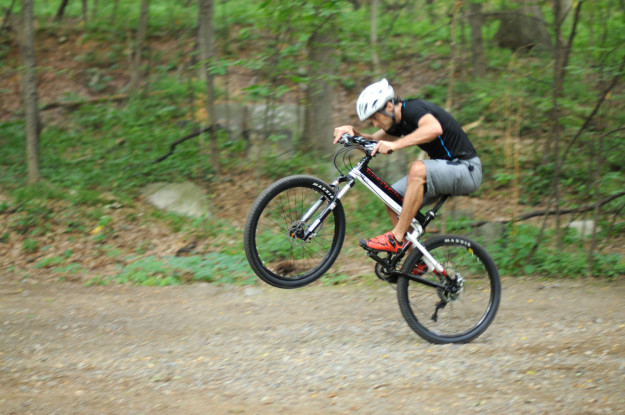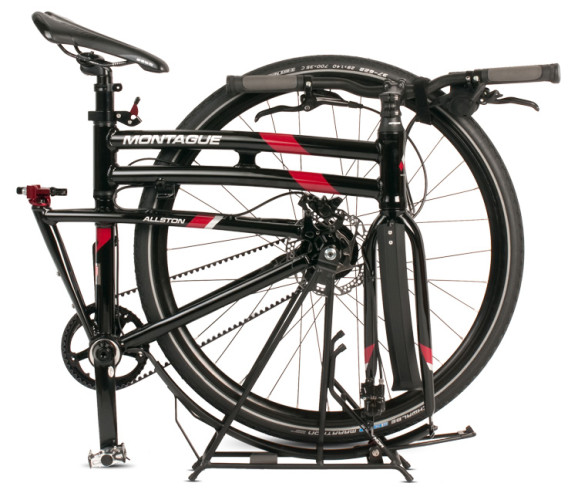
Mark Walker of Montague Bikes worked with Shapeways for the production of 3D printed aluminum parts for their line of foldable bicycles. Montague Bikes is a mid-sized company headquartered in Cambridge, Massachusetts. The company is involved in researching, developing, designing, and testing bikes, which they also distribute. The 3D printing capabilities has enabled the company to speed up its production process.
“Shapeways has been a tremendous value to us by shortening the lead time from concept to product testing,” said Walker “Before, it would take months to CNC complex parts, often to find they did not fit the bill. Now, in a matter of days, Shapeways prints our parts initially in plastic – enabling us to quickly evaluate the form and fit of the concept.” Prototyping the parts in plastic enables the company to perform extensive testing and see how riders actually interact with the parts. This provides more valuable and effective testing than traditional CAD/CAE prototyping, according to Walker.
Once testing is completed, Montague Bikes is able to quickly move into printing the foldable bike in aluminum — usually only requiring a few weeks. “Upon validating printed metal parts, depending on the project, we can often go straight to production, skipping CNC altogether,” said Walker.
Walker also sees great value in working with aluminum. “Most of the quality bicycles and accessories sold in our industry are made of aluminum,” he explained. “Having the ability to print in aluminum has been tremendous because it accelerates our path to production. It allows us to test the function of new designs without either the long lead time of traditional metal prototyping or the inherent weakness of 3D-printed plastic. In addition, in some cases we’ve welded printed aluminum parts to existing bike frames, something you can’t do with other 3D-printed materials.”

Shapeways is a 3D Printing marketplace with community of designers, some of whom offer freelance design services. Headquartered in New York, Shapeways has factories and offices in Eindhoven, Queens, and Seattle. They use industrial size 3D Printers to create products for designers and small manufacturers, often in combination with post-processing, like dyeing and polishing. In January 2016, the company introduced aluminum to its materials portfolio using the selective laser melting (SLM) process.
